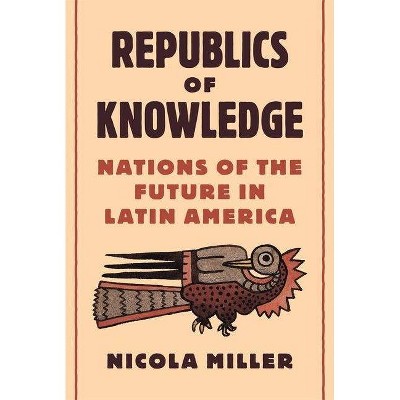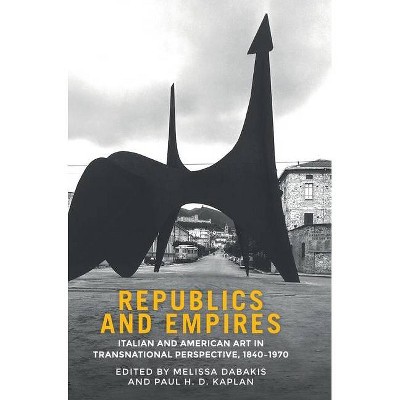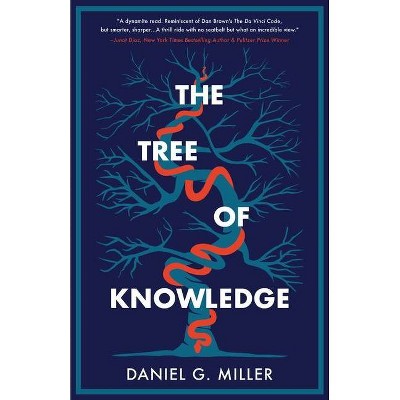Republics of Knowledge - by Nicola Miller (Hardcover)

Similar Products
Products of same category from the store
AllProduct info
<p/><br></br><p><b> About the Book </b></p></br></br>"Republics of Knowledge tells the story of how the circulation of knowledge shaped the formation of nation-states in Latin America, and particularly in Argentina, Peru and Chile, during the century after Iberian rule was defeated in the 1820s. Most immediately, the author has sought to provide a cross-disciplinary approach to the history of knowledge, combining the methods of global intellectual history with a new way of thinking about nations as experienced and enacted as well as how they are imagined, and in so doing offer a new interpretation of the history of independent Latin America to illustrate its wider significance in the making of the modern world. By bringing these lines of inquiry together within a transnational framework, Nicola Miller shows how evidence from the pioneering nations of Latin America can invite historians to rethink many of their general theories about how knowledge travels and how a sense of nationhood is created. The book is designed to stimulate debate about the significance of knowledge not only in Latin America but in all modern societies. As Miller explains, Latin America is usually regarded as an exception to general theories, notably of colonialism, nationalism and liberalism; and yet it was in that part of the world, not in Europe, that the Age of Revolution brought the founding of a second wave of modern republics, and it was in Latin America that pioneering attempts were made to apply liberal principles in societies with inherited caste divisions and corporate institutions. It was there that some of the richest debates about the vexed relationship between collective identities and individualism took place"--<p/><br></br><p><b> Book Synopsis </b></p></br></br><p><b>An enlightening account of the entwined histories of knowledge and nationhood in Latin America--and beyond</b> <p/>The rise of nation-states is a hallmark of the modern age, yet we are still untangling how the phenomenon unfolded across the globe. Here, Nicola Miller offers new insights into the process of nation-making through an account of nineteenth-century Latin America, where, she argues, the identity of nascent republics was molded through previously underappreciated means: the creation and sharing of knowledge. <p/>Drawing evidence from Argentina, Chile, and Peru, <i>Republics of Knowledge</i> traces the histories of these countries from the early 1800s, as they gained independence, to their centennial celebrations in the twentieth century. Miller identifies how public exchange of ideas affected policymaking, the emergence of a collective identity, and more. She finds that instead of defining themselves through language or culture, these new nations united citizens under the promise of widespread access to modern information. Miller challenges the narrative that modernization was a strictly North Atlantic affair, demonstrating that knowledge traveled both ways between Latin America and Europe. And she looks at how certain forms of knowledge came to be seen as more legitimate and valuable than others, both locally and globally. Miller ultimately suggests that all modern nations can be viewed as communities of shared knowledge, a perspective with the power to reshape our conception of the very basis of nationhood. <p/>With its transnational framework and cross-disciplinary approach, <i>Republics of Knowledge</i> opens new avenues for understanding the histories of modern nations--and the foundations of modernity--the world over.</p><p/><br></br><p><b> About the Author </b></p></br></br><b>Nicola Miller</b> is professor of Latin American history at University College London. Her books include <i>Reinventing Modernity in Latin America: Intellectuals Imagine the Future, 1900-1930 </i>and <i>In the Shadow of the State: Intellectuals and the Quest for National Identity in Twentieth-Century Spanish America</i>.
Price History
Cheapest price in the interval: 39.99 on October 22, 2021
Most expensive price in the interval: 39.99 on December 20, 2021
Price Archive shows prices from various stores, lets you see history and find the cheapest. There is no actual sale on the website. For all support, inquiry and suggestion messages communication@pricearchive.us




















